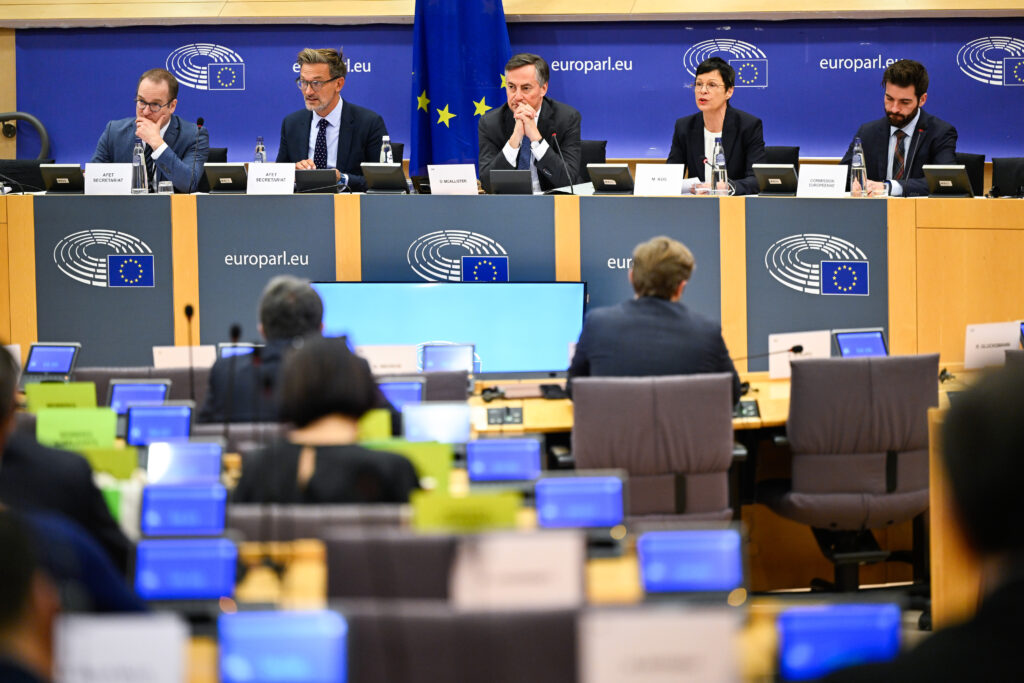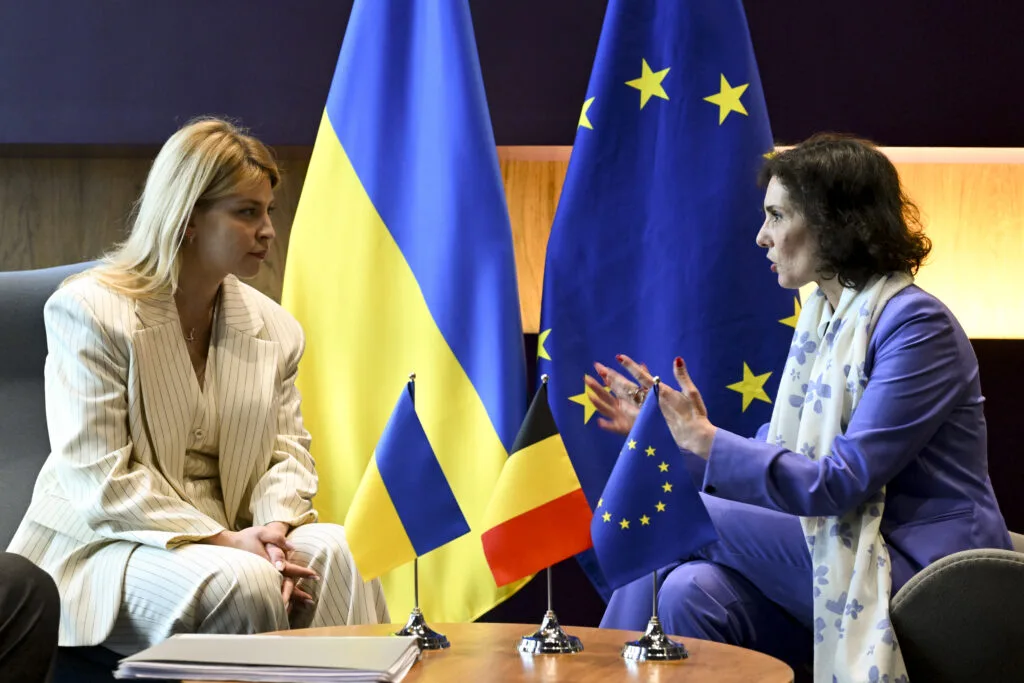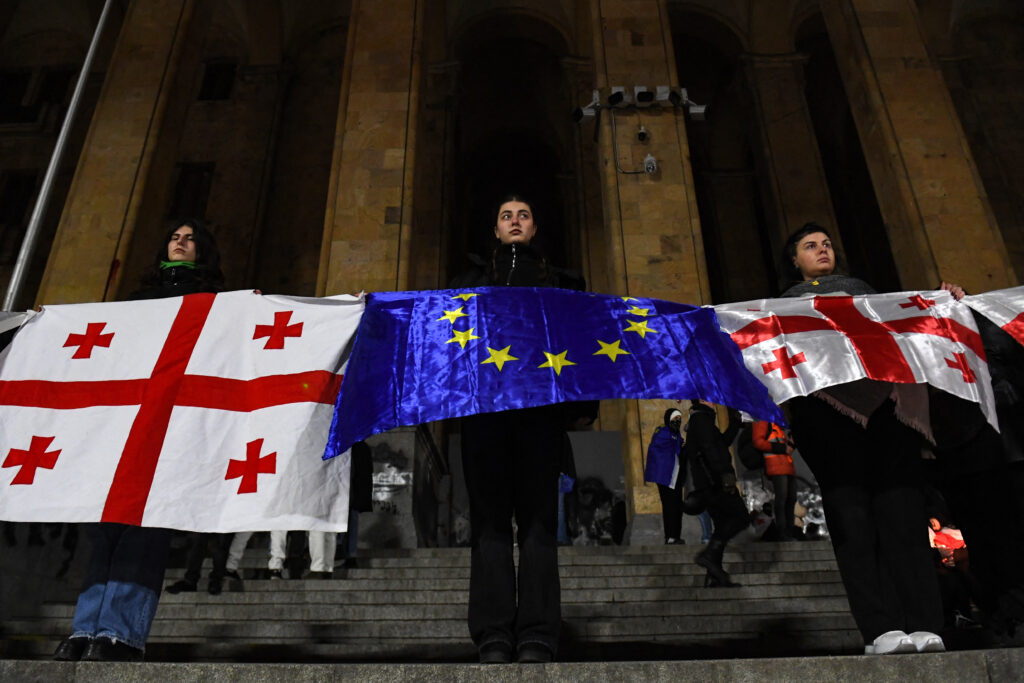Brussels – “For the first time in ten years, we have the realistic prospect of bringing to the finish line during this term,” that is, by 2029, not one but “two or three more countries” applying to join the European Union. This is the conviction of Marta Kos, the Enlargement Commissioner of the second von der Leyen College. But while recalling how this “window of opportunity” was opened by Russia’s invasion of Ukraine, she reiterated that “there will be no geopolitical discounts” toward some countries over others, as “the enlargement process remains merit-based.”
Speaking to the MEPs of the Foreign Affairs Committee (AFET) in the Brussels hemicycle this morning (Jan. 14), the Slovenian commissioner focused mainly on two key elements, around which she promised to centre her work over the next five years.
European values and “merit”
On the one hand, she stressed that although alignment to Common Foreign and Security Policy positions is essential (starting with the adoption of the sanctions imposed by Brussels against Russia), it is equally necessary that the candidate countries respect “European values”. That is, those enshrined in Article 2 of the Treaty (TUE), called by Kos “the cornerstone of enlargement.” These include the respect for human dignity and fundamental rights, including those of minorities, as well as the protection of democracy and the rule of law. “If we followed geopolitics,” she argued, “we would have already brought in all the candidate countries.”

On the other hand, she remarked on the fundamental dimension of reciprocity in the concept of “merit,” making it clear that both sides pursuing the enlargement process must be committed to it. Not only candidate countries must demonstrate their seriousness by putting in place the reforms necessary for alignment with EU values and Copenaghen criteria. At the same time, such meritocracy also concerns “us, the member states”, for if the candidates “prove themselves, they must be able to join” the Union without ending up in a limbo of indefinite waiting.
The scolding to the chancelleries came especially in relation to the work of the Council: throughout the entire negotiation process, she reminded, “150 unanimous decisions are needed for a candidate country to become a member,” so it is vital that those decisions do not become the occasion for a political tug-of-war between national governments, which, on the contrary, will have to show ambition and vision in the coming months and years. “Enlargement is above all a work of the member states,” she repeated, “As a Commission, we can work on the technical level, but politically, it is a decision of the governments.”
A possible roadmap
Regarding timelines, Kos said she hopes to open “one or two clusters with Ukraine and Moldova” by the end of the Polish presidency semester of the EU (expiring June 30), as well as “progress on several other clusters and chapters in the Western Balkans.” Ukrainian President Volodymyr Zelensky reportedly asked the commissioner “to open all negotiating chapters this year,” she told her audience, only to add that “the problem is not opening but closing them” because “reforms must be sustainable.”
Kos expressed confidence that both Kyiv and Chisinau—the latter described as under “energy blackmail” by Moscow, given that since early January, no more gas that had previously transited through Ukraine has been coming in—can open the first cluster (key chapters) and Chapter 31 (foreign policy) during 2025, “if they keep their promises and if we successfully conclude the procedure in the Council.”

Albania, Bosnia-Herzegovina, Northern Macedonia, Montenegro, and Serbia are official candidates in the Balkan region, while Kosovo is a potential candidate. Among them, only Belgrade has not yet formally started negotiations, but the frontrunners are undoubtedly Tirana and Podgorica: “Montenegro aims to conclude the negotiation process by the end of 2026 and Albania by the end of 2027,” the commissioner said, acknowledging that the road is uphill and repeating that “success also depends on the member states.”
The challenges of enlargement
But there are other countries where there has been no progress, on the contrary. In addition to Serbia, whose government continues to maintain ambiguous positions especially with respect to its relationship with Russia and China, there is the case of Georgia—which, Kos assures, “will be a priority” during his term. What is happening in Tbilisi “is a stark reminder that the path to EU membership is not easy and that setbacks can occur,” admitted the Slovenian liberal, regretting that “the Georgian authorities continue to move away from EU integration.”
The pro-Russian executive in Tbilisi formally suspended negotiations with Brussels in late November, sparking an unprecedented wave of protests that have now been going on for more than a month and a half, although, in fact, the accession process had already been frozen by the EU last June.

What about Armenia? “We will accept the membership application if it is made,” Kos said in reference to the recent move by Premier Nikol Pashinyan (who recently announced the imminent submission of a bill for EU membership), moreover making himself available to go to Yerevan “to see what they need.”
Revise the rules
In general, however, the EU executive seems optimistic. Certainly, for Kos, “we must prepare the Union for the entry of new members” since a European club of 30 or more participants cannot maintain the same rules as it did when there were only 12 members. But even in this case, she noted, the ball is in the court of the Twenty-seven since institutional reforms (especially those requiring treaty revisions, which must be approved unanimously) need the political support of the chancelleries.
Finally, she added, a way must be found to resolve bilateral issues between candidate countries and member states (e.g., those between North Macedonia and Bulgaria or those between Turkey and Cyprus) when they arise without them hijacking the entire negotiating process. In short, the potential is there, but a not inconsiderable dose of political will is needed to realise it.
English version by the Translation Service of Withub









